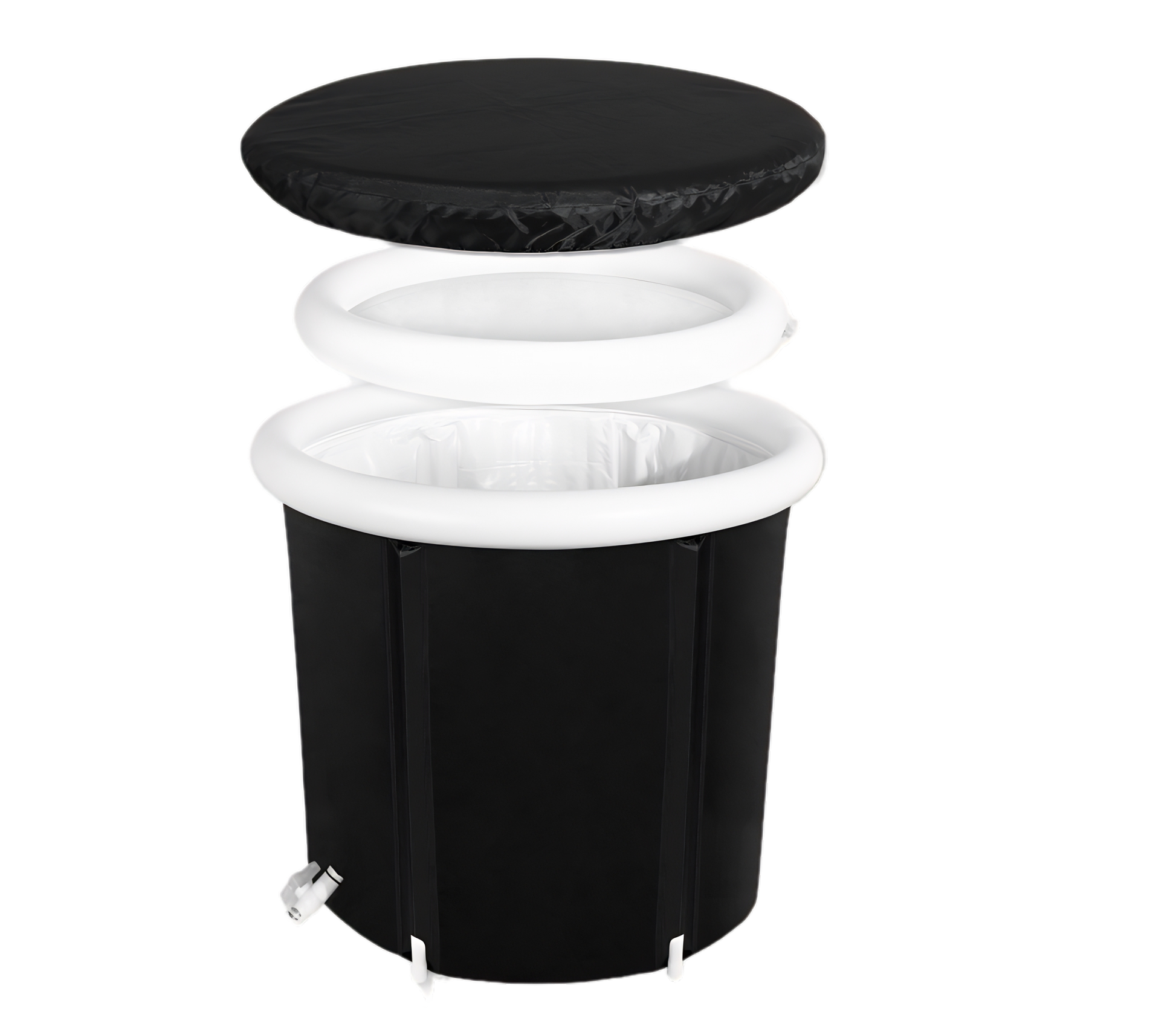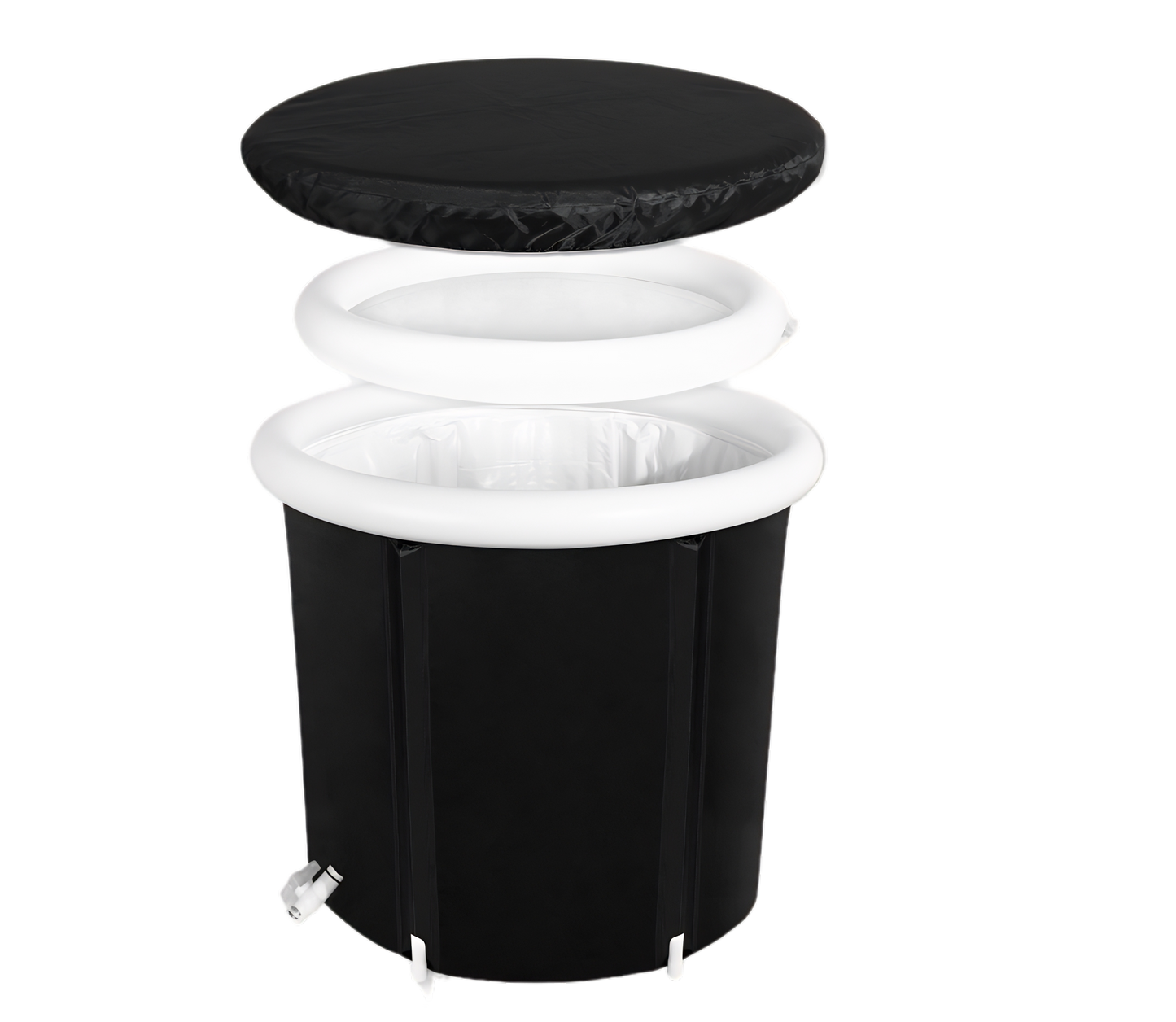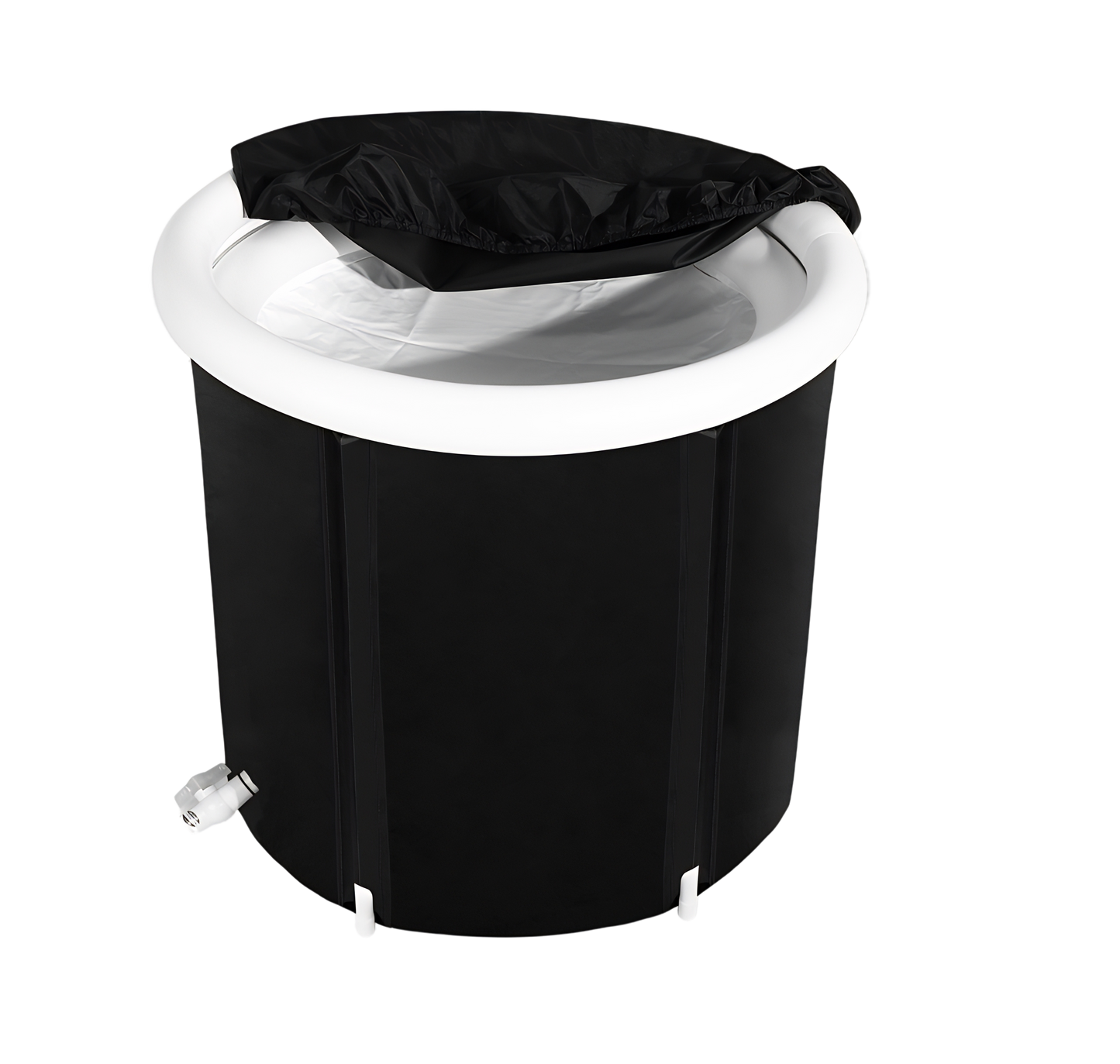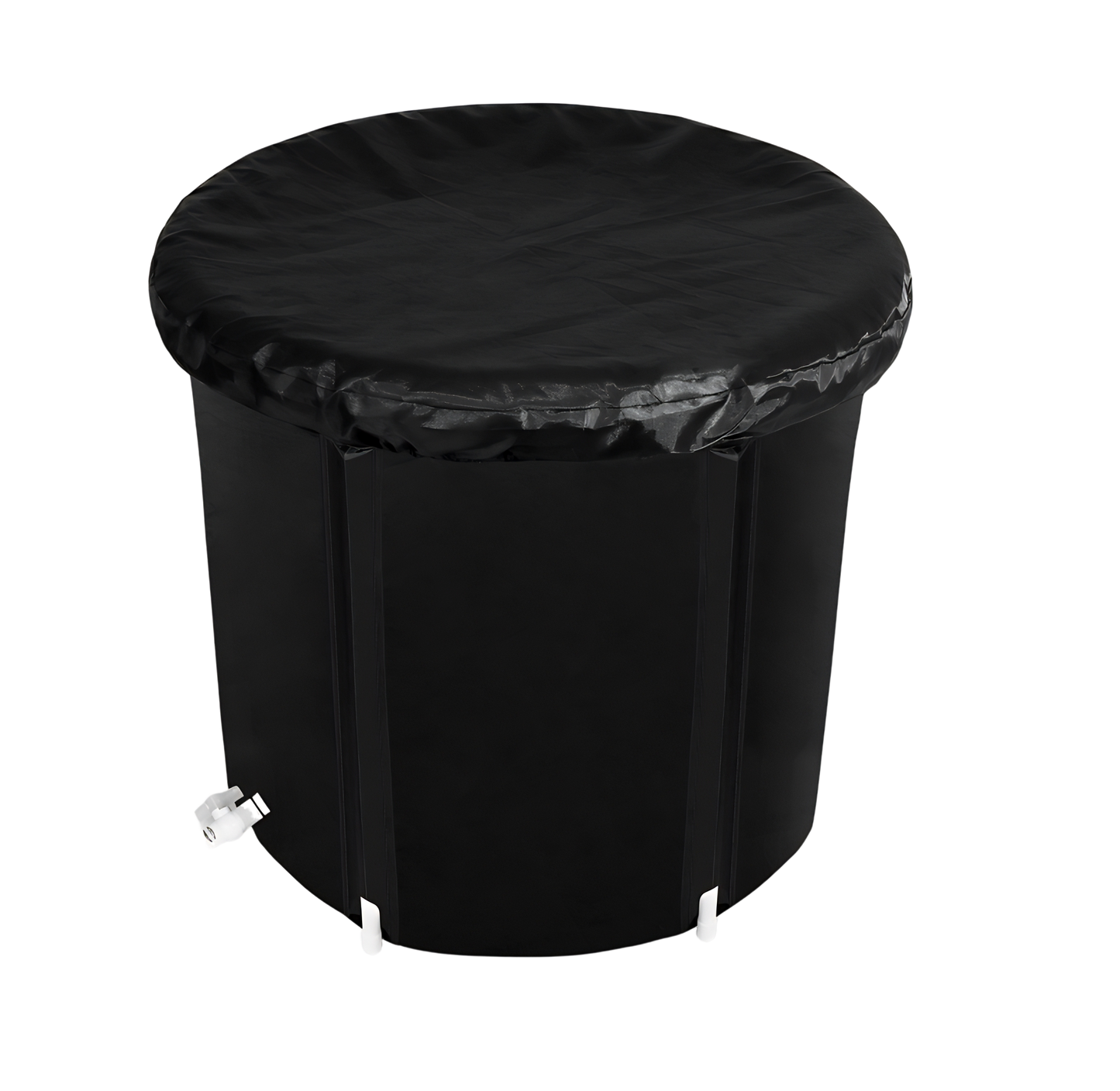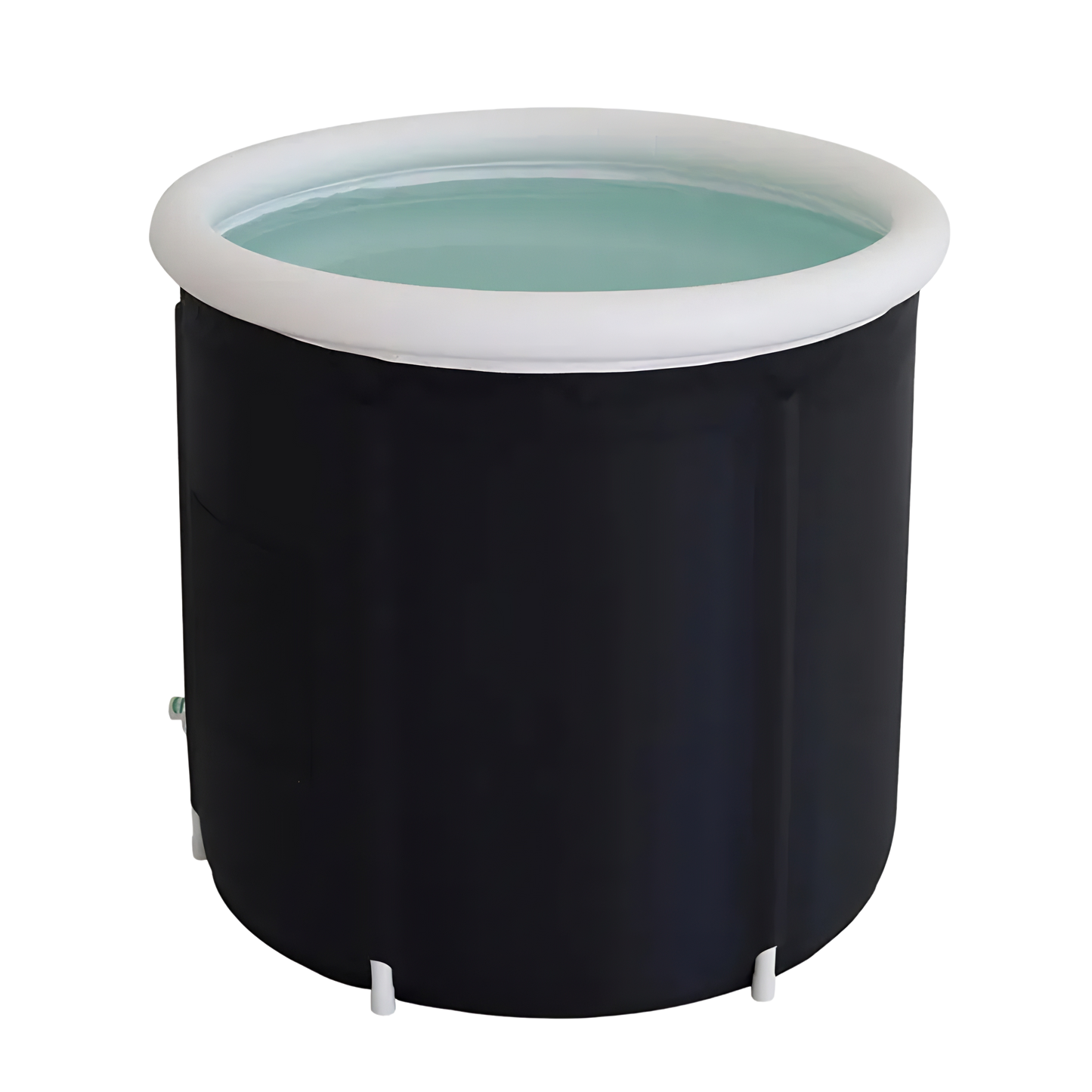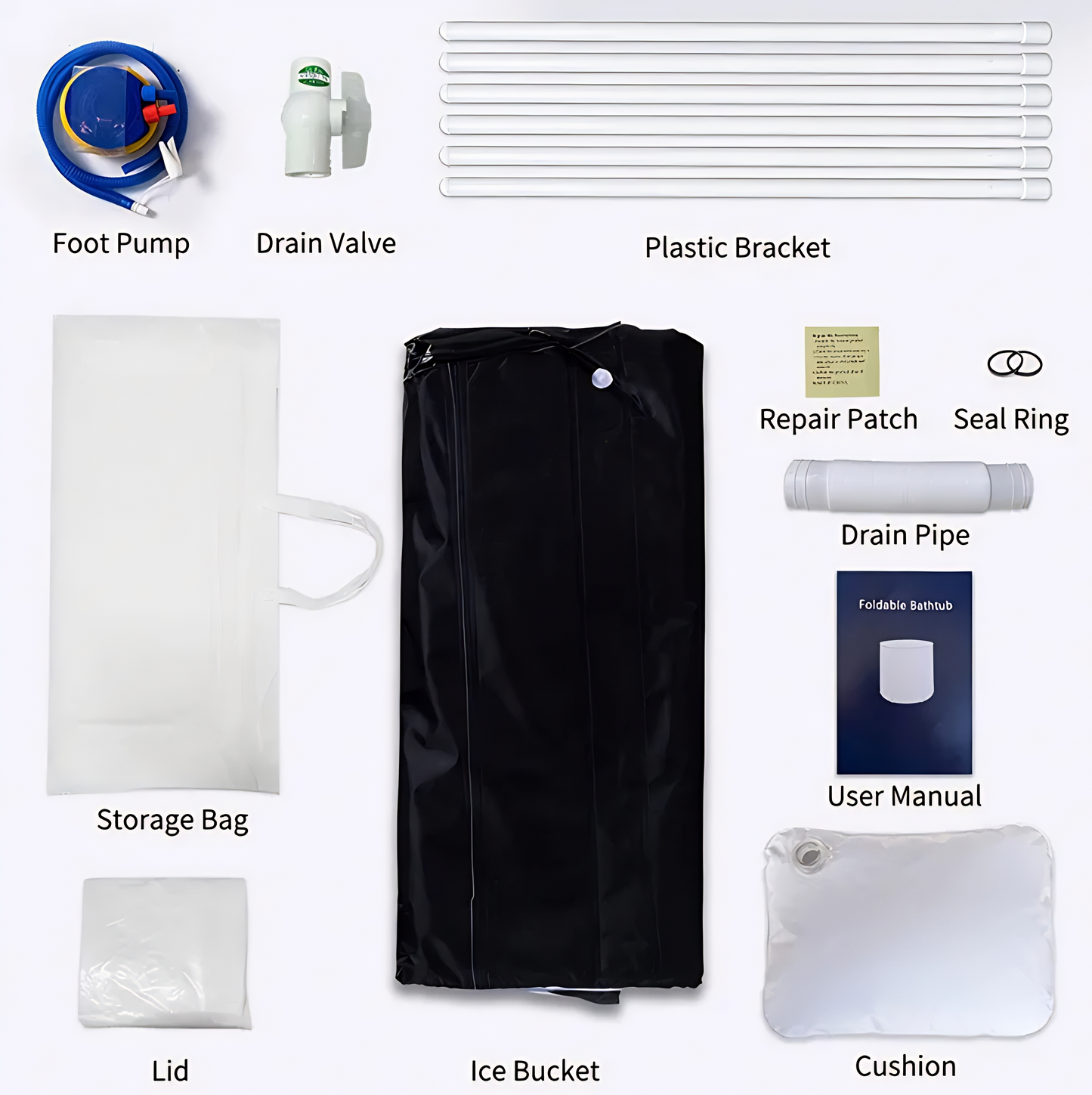Key Takeaways
- Ice baths can potentially enhance sleep quality, with research indicating benefits such as deeper sleep and fewer disturbances.
- You should not sleep straight after an ice bath, it is advisable to wait at least an hour after an ice bath before going to bed to allow the body to balance out and warm up.
- The body's natural cooling in the evening aids in sleep readiness, and ice baths can amplify this effect.
- Individual experiences with ice baths and sleep vary, so personal experimentation is key to finding the optimal routine.
Introduction
Ice baths have long been associated with athletic recovery and health benefits. But a question that's been surfacing recently is, "Should you sleep after an ice bath?" This article delves into the science and practicalities of ice baths in relation to sleep, aiming to provide clarity on this intriguing topic.
The Role of Decreasing Body Temperature in Sleep
When you immerse yourself in an ice bath, your body temperature drops rapidly. This decrease in core temperature is closely linked to sleep readiness . Scientifically, a cooler body is known to facilitate the onset of sleep. As night approaches, our body naturally cools down, signaling the brain that it's time for rest (Harding, Franks, & Wisden, 2020). An ice bath can amplify this effect, potentially making it easier to drift off to sleep.

Rebound Effect: The Body's Response Post Ice Bath
After the initial cold shock of the ice bath, the body undergoes a 'rebound effect.' This involves mechanisms working to restore warmth and equilibrium. Increased blood flow, muscle relaxation, and the release of endorphins are common reactions. These endorphins, often termed 'feel-good hormones,' can induce a sense of relaxation and well-being, which might be conducive to sleep.
Cold Therapy and Sleep: What Does the Research Say?
Cold therapy, like ice baths, has been studied for its health benefits. While one study found no effect on melatonin levels from cold immersion, others showed positive sleep impacts. Swimmers using cold water immersion post-exercise saw improved sleep, likely due to a rebalanced nervous system (Al Haddad, Parouty, & Buchheit, 2011). Similarly, runners experienced more deep sleep and fewer disturbances after cold exposure (Chauvenau et al, 2021). These results suggest that ice baths, regardless of timing, might improve sleep quality
How to Take an Ice Bath for Sleep Benefits
To harness the sleep benefits of ice baths, it's essential to do it right. Ensure the water temperature isn't too extreme, with temperatures between 50-59°F (10-15°C) being a good starting point. Start with short durations, gradually increasing as you become more accustomed. Always have warm clothing ready for post-bath to aid the body's warming process.
Timing Considerations: Is It Advisable Before Bed?
The crux of the matter: Should you dive into bed post ice bath? While the immediate effects of an ice bath might seem conducive to sleep, it's advisable to allow the body some time to balance out and warm up. A gap of at least an hour between the ice bath and bedtime is recommended. However, individual experiences may vary. It's essential to experiment and find a timing that aligns with your body's responses, ensuring a restful night's sleep.
Conclusion
Studies highlight the potential of ice baths to improve sleep, though optimal timing remains unclear. Taking an ice bath close to bedtime might increase alertness, so it's advisable to wait an hour before sleeping. Individual responses vary, so it's best to experiment and adjust based on personal experience, aiming for a restful sleep.
FAQs
HOW LONG SHOULD YOU ICE BATH FOR SLEEP?
For sleep benefits, it's recommended to start with short durations of 2-5 minutes in the ice bath. As you become more accustomed, you can gradually increase the time. However, it's essential to listen to your body and avoid overexposure, which might counteract the desired sleep benefits.
If you want to learn more about ice bath timings, check out some of our more detailed articles:
- How long should you ice bath for? Comprehensive Guide
- Is 3 Minutes Too Short For An Ice Bath?
- Ten Minute Ice Baths? Ice Bath Bad A**
ARE ICE BATHS BETTER AT NIGHT OR MORNING?
Both timings have their merits. Morning ice baths can be invigorating, helping kickstart your day. Evening ice baths, especially an hour or so before bedtime, can aid in relaxation and potentially improve sleep quality. It's advisable to experiment and see which timing aligns best with your sleep patterns and see which one works best for you!
CAN YOU ICE BATH EVERY DAY?
While it's possible to take ice baths daily, it's essential to monitor your body's response. For some, daily cold exposure can be beneficial, while others might need recovery days in between. Always prioritize your well-being and adjust frequency based on how your body reacts.
If you want to read more about this, check out our article that delves deeper into the matter: Is It Ok To Take An Ice Bath Every Day?
HOW OFTEN SHOULD I TAKE AN ICE BATH?
The frequency of ice baths depends on individual goals and tolerance. For sleep benefits, 2-3 times a week might be sufficient. However, if you're also using ice baths for athletic recovery or other health benefits, you might adjust the frequency.
For more reading, check out our detailed article on the matter: How Often Should I Ice Bath?
References
- Robey, E., Dawson, B., Halson, S., Goodman, C., Gregson, W., & Eastwood, P. (2013). Post-exercise cold water immersion: effect on core temperature and melatonin responses. European journal of applied physiology, 113(2), 305–311. https://doi.org/10.1007/s00421-012-2436-3
- Chauvineau, M., Pasquier, F., Guyot, V., Aloulou, A., & Nedelec, M. (2021). Effect of the Depth of Cold Water Immersion on Sleep Architecture and Recovery Among Well-Trained Male Endurance Runners. Frontiers in sports and active living, 3, 659990. https://doi.org/10.3389/fspor.2021.659990
- Al Haddad, Hani & Parouty, Jonathan & Buchheit, Martin. (2011). Effect of Daily Cold Water Immersion on Heart Rate Variability and Subjective Ratings of Well-Being in Highly Trained Swimmers. International journal of sports physiology and performance. 7. 33-8. 10.1123/ijspp.7.1.33.
- Harding, E. C., Franks, N. P., & Wisden, W. (2020). Sleep and thermoregulation. Current opinion in physiology, 15, 7–13. https://doi.org/10.1016/j.cophys.2019.11.008
- Image Header: PeopleImages / iStock / Getty Images Plus
- Figure 1: https://www.sleepcycle.com/how-to-fall-asleep/how-to-fall-asleep-during-hot-nights/

